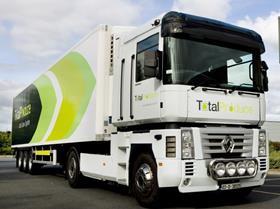
Dutch fresh produce company Total Produce BV, part of the Irish multinational of the same name, has long been specialised in the import of overseas fruit into its various European markets. So it is something of a surprise that the firm has only recently chosen to develop key exotic items including avocados, mangoes and limes.
“These are the big-volume exotics,” explains commercial manager Ton Feelders. “We hired a specialist in order to be able to develop this line further. We already work in the main countries that supply these items, so we have the contacts. Consumption of avocados is increasing fast, especially in markets like France and Scandinavia, and it is the same for mangoes.”
Total Produce is importing avocados from Peru, Chile, Israel, Kenya, Colombia and Mexico – practically anywhere that grows them, as long as it helps the company to achieve year-round supplies. “We have even been contacted by an avocado supplier in Cameroon,” reveals Feelders.
For limes, Total Produce handles the Sunkist brand from Mexico, as well as importing from Brazil. “We have a partnership with Sunkist,” says Feelders. “It is an exceptional fruit. We are already importing by air and will now start our first sea shipments.”
According to Feelders, finding windows in which to sell limes is no problem, but price volatility can be. “Limes are hard to predict, and prices can go up and down,” he says. “But consumption is on the rise, and if you do it, it has to be year-round.”
Year-round supplies are a standard request from retailers, especially for certain products. “The retailers rely on our knowledge and know-how,” says commercial manager Tjeerd Hoekstra. “Some items are too complicated or too small for the supermarkets to import direct. When the shelf-life is short, for example, it can be difficult, so the retailers need our expertise.”
Addressing sustainability concerns
Harder still is the need to make use of this expertise in sourcing far-off fruit while addressing real consumer concern over sustainability and the environment. “Consumers want more transparency about where their fruit is coming from,” he says. “They want to be as close as possible to the farm and want to know much more: Where does the fruit grow? Does the project involve support for local communities? People prefer local.”
Social media has made it possible for companies to communicate directly to such consumers, while the use of QR codes is a means of placating those clamouring for the finer details. The company’s new facility will be yet another advantage when it opens in 2017.
Next year, Total Produce will take up residence at Dutch logistics service provider Kloosterboer’s Rotterdam Cool Port terminal development, a state-of-the-art distribution centre being constructed in partnership with the Port of Rotterdam.
“We will be the largest company at the development and will handle all our imports at this facility,” explains Feelders. “The multi-transport possibilities coming in and going out are key. We will benefit from train connections, good road links and short sea shipments. We will receive everything by sea and will be able to send smaller ships to Scandinavia. In terms of congestion, sustainability and our CO2 footprint, this will give us an advantage.”






No comments yet